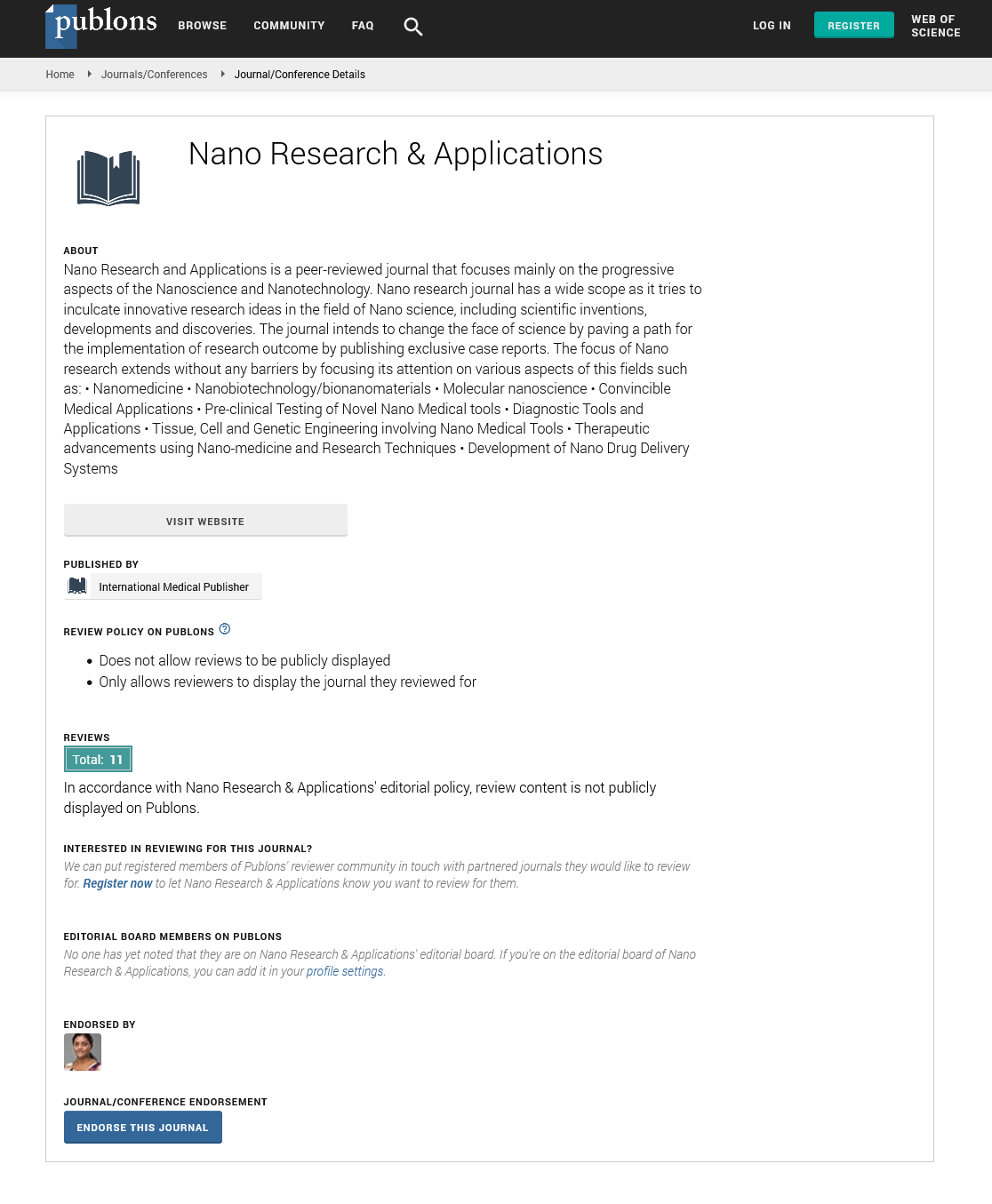ISSN : 2471-9838
Nano Research & Applications
The Salvinia effect: perspectives for drag reduction and antifouling using a permanent layer of air under water
EuroSciCon Conference on Nanotechnology & Smart Materials
October 04 -06 ,2018 Amsterdam , Netherlands
Thomas Schimmel
Karlsruhe Institute of Technology (KIT), Germany
ScientificTracks Abstracts: Nano Res Appl
DOI: 10.21767/2471-9838-C6-024
Abstract
Three key problems which ships are facing, are related to the fact that the ship hull is in contact with water: drag, the largest part of the fuel consumption of ships is due to the friction with the surrounding water; corrosion, a phenomenon which is also largely related to the fact that the ship is in direct contact with the surrounding sea water with its high content of salt; fouling, the growth of sea organisms would not happen if the ship would be surrounded by air instead of water. Latest developments in the area of bionic surfaces show that avoiding the direct contact between a ship and the surrounding water appears feasible and opens intriguing perspectives for practical applications. The floating water fern Salvinia molesta demonstrates how permanent layers of air can be kept under water for weeks. Within a joint research project of the Universities of Bonn, Karlsruhe and Rostock, a thorough understanding of this recently discovered Salvinia effect was achieved. This leads to the development of a novel type of artificial surfaces which are based on their topographic structure and chemical functionality, keeping a permanent layer of air under water. Meanwhile, such artificial surfaces are capable of keeping an air layer under water for even much longer times than the Salvinia plant itself, the prerequisite for the applications mentioned above using artificial, specially designed surfaces which remain dry although being kept under water. The design and fabrication of such artificial surfaces and their properties including drag reduction will be discussed. The talk will give an overview of latest developments based on this biomimetic approach and shows perspectives for future applications ranging from drag reduction to future bionic antifouling ship coatings
Biography
Prof. Dr. Thomas Schimmel holds a doctorate in physics from the University of Bayreuth. So far he had professorships at universities in Munich and Linz. Since 1996 he teaches at the Institute of Applied Physics of Karlsruhe University, Karlsruhe Institute of Technology (KIT), and participates in numerous research projects. He is the initiator and spokesman of the research network "Functional Nanostructures" in Baden-Württemberg. Professor Schimmel is head of the working group for nanostructuring and scanning probe technology.
E-mail: thomas.schimmel@kit.edu
Google Scholar citation report
Citations : 387
Nano Research & Applications received 387 citations as per Google Scholar report
Nano Research & Applications peer review process verified at publons
Abstracted/Indexed in
- Google Scholar
- China National Knowledge Infrastructure (CNKI)
- Directory of Research Journal Indexing (DRJI)
- WorldCat
- Publons
- Secret Search Engine Labs
- Euro Pub
Open Access Journals
- Aquaculture & Veterinary Science
- Chemistry & Chemical Sciences
- Clinical Sciences
- Engineering
- General Science
- Genetics & Molecular Biology
- Health Care & Nursing
- Immunology & Microbiology
- Materials Science
- Mathematics & Physics
- Medical Sciences
- Neurology & Psychiatry
- Oncology & Cancer Science
- Pharmaceutical Sciences
